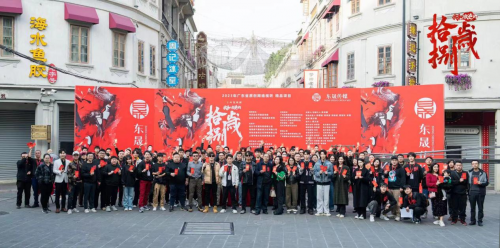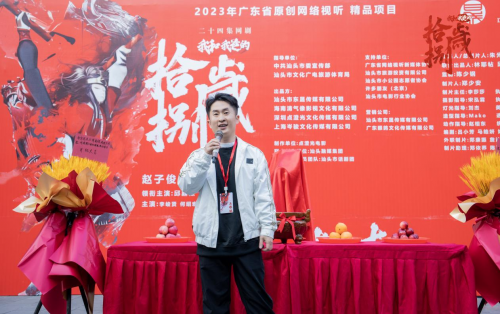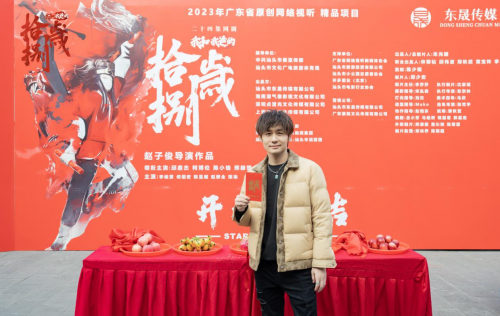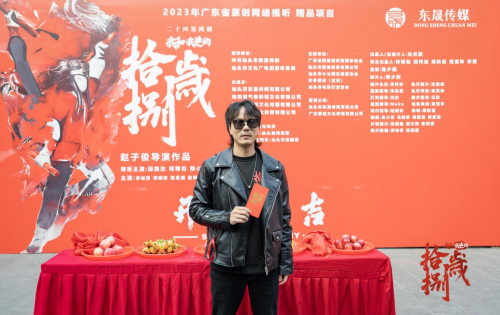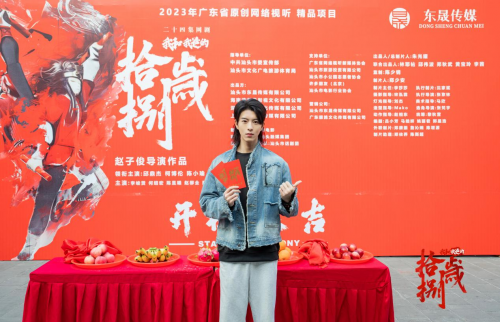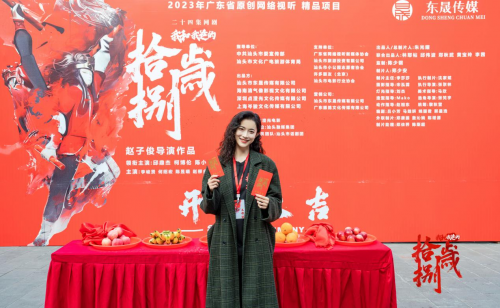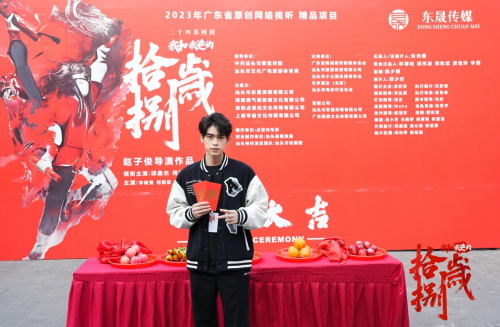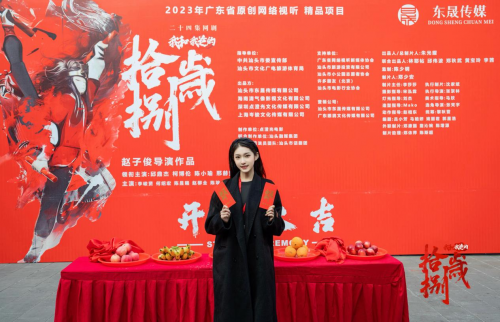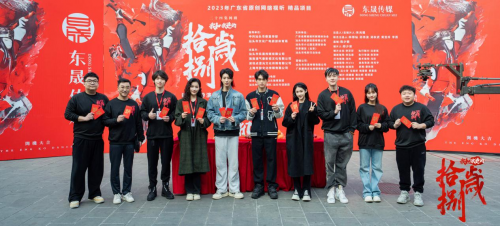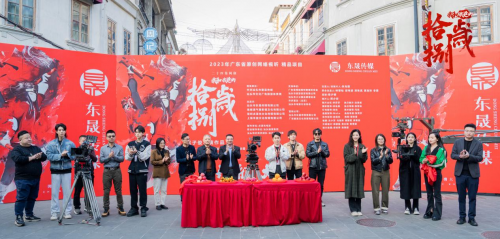[Keywords:] national emergency management system; Major risks; National governance capacity
[Chinese Library Classification Number ]D63 [Document Identification Code ]A
Preventing and resolving major risks is an important part of the three major battles, and it is the political responsibility of party committees and governments at all levels and leading cadres. The COVID-19 epidemic is a sudden major risk, a big test of China’s national governance system and governance capacity, and a test of the ability of party committees and governments at all levels and leading cadres to prevent and resolve major risks. The General Secretary of the Supreme Leader pointed out that it is necessary to improve the national emergency management system and improve the ability to deal with urgent and dangerous tasks in view of the shortcomings and shortcomings exposed in the response to this epidemic. Party committees and governments at all levels and leading cadres must deeply understand the severe and complicated risk situation in China, give full play to the remarkable advantages of the Communist Party of China (CPC)’s leadership and Socialism with Chinese characteristics’s system, further improve the national emergency management system, and do a good job in preventing and resolving major risks.
First, a deep understanding of China’s severe and complex risk situation
The report of the 19th National Congress of the Communist Party of China pointed out that it is an important principle for our party to manage the country by coordinating development and security, enhancing the sense of hardship and being prepared for danger in times of peace. Only by strengthening risk awareness, constantly observing the general trend and thinking about the overall situation, scientifically predicting the development trend of the situation and hiding the risk challenges, and taking precautions can we enhance the initiative to prevent and resolve major risks.
To prevent and resolve major risks, we must first correctly grasp the situation and scientifically understand risks. Great changes have taken place in China’s current domestic and international environment, and the risk situation it faces has also changed greatly, showing three characteristics: various risks are complex and diverse, chain linkage and extreme risks are more prominent.
(A) various risks are complex and diverse
Socialism with Chinese characteristics has entered a new era, and today’s opening-up and development environment is generally more favorable than ever, and at the same time, it faces unprecedented contradictions and risks. In October 2015, General Secretary of the Supreme Leader pointed out: "In the next five years, it may be a period when risks in all aspects of China’s development are constantly accumulating and even concentrated. The major risks we face include domestic economic, political, ideological and social risks and risks from nature, as well as international economic, political and military risks. If there is a major risk and you can’t help it, national security may face a major threat, and the process of building a well-off society in an all-round way may be forced to be interrupted. " [1] The report of the 19th National Congress of the Communist Party of China also emphasized: "We should guard against all kinds of risks more consciously and resolutely overcome all difficulties and challenges in political, economic, cultural, social and other fields and in nature."
Risk is an important feature of modern society. At present, China is faced with the dual pressures of safeguarding national sovereignty, security and development interests externally and maintaining political security and social stability internally, and various foreseeable and unpredictable risk factors have obviously increased. The risks we face are varied, including natural risks, economic risks and technological risks, as well as health risks, social risks and political risks, including both local risks that occur in China and imported risks that are affected by other countries (regions).
(B) Risk linkage
Today’s society is an open giant system, and various risks often do not appear in isolation. It is likely that you have me and I have you, which are intertwined and form a risk complex. General Secretary of the Supreme Leader pointed out: "Various sources and points of contradictory risk challenges are intertwined and interact with each other. If we fail to take precautions and respond effectively, it will be transmitted, superimposed, evolved and upgraded, so that small contradiction risk challenges will develop into large contradiction risk challenges, local contradiction risk challenges will develop into systematic contradiction risk challenges, international contradiction risk challenges will evolve into domestic contradiction risk challenges, and contradictions in economic, social, cultural and ecological fields will turn into political contradiction risk challenges, which will ultimately endanger the party’s ruling position and national security. " [2]
With China’s reform entering the deep-water area, economic development has entered a new normal, various contradictions are superimposed, and potential risks are concentrated, which is easy to form systematic risks and produce "ripple effect" and "domino effect". Therefore, we should strictly prevent all kinds of security risks from gathering and converging to form a risk complex, and keep the bottom line that systematic risks do not occur. At the same time, in the era of economic globalization, the security of all countries is interrelated and affects each other; No country can seek its own absolute security on its own, and no country can reap stability from the turmoil of other countries. Therefore, we should co-ordinate the two major domestic and international situations and develop two major safety issues, focusing on the key points and taking the overall situation into consideration, so as to effectively prevent all kinds of risk chain linkage.
(3) Extreme risks are more prominent.
General Secretary of the Supreme Leader stressed, "In the face of the complicated international situation, complex and sensitive surrounding environment, and arduous and arduous tasks of reform, development and stability, we must always be on high alert, not only for the’ black swan’ incident, but also for the’ grey rhinoceros’ incident; It is necessary to have the first hand to prevent risks, but also to have a clever way to deal with and resolve risk challenges; We must not only fight a prepared battle to prevent and resist risks, but also fight a strategic initiative to turn danger into danger. " [3]
To guard against extreme risks, we must keep the bottom line, and we must never make subversive mistakes on fundamental issues. Once they appear, they will be irreparable and irreparable. Under the new situation, the major risks faced by China’s national security and social stability have obviously increased, and the impact of various "black swan" incidents and "gray rhinoceros" incidents has obviously increased. Therefore, preventing and resolving major risks is very important for winning the Chinese dream of building a well-off society in an all-round way, winning the great victory of Socialism with Chinese characteristics in the new era and realizing the great rejuvenation of the Chinese nation. We should prevent and control all kinds of risks, but we should focus on preventing and controlling the overall risks that may delay or interrupt the great rejuvenation of the Chinese nation.
Second, give full play to the remarkable advantages of the Socialism with Chinese characteristics system.
General Secretary of the Supreme Leader pointed out that to win the tough battle to prevent and resolve major risks, we must uphold and improve the Socialism with Chinese characteristics system, promote the modernization of the national governance system and governance capacity, and use the power of the system to deal with the impact of risk challenges. [4] Socialism with Chinese characteristics system has obvious institutional advantages. Facts have proved that the Socialism with Chinese characteristics system can overcome all kinds of risk challenges at home and abroad, and constantly improve and develop in this process. Standing at a new historical starting point, to effectively cope with the increasingly complex and severe risk challenges, we must give full play to China’s powerful institutional advantages and better transform China’s institutional advantages into the effectiveness of preventing and resolving major risks.
(1) Adhere to the centralized and unified leadership of the Party.
The Communist Party of China (CPC)’s leadership is the most essential feature of Socialism with Chinese characteristics and the greatest advantage of Socialism with Chinese characteristics system. The Decision of the Fourth Plenary Session of the 19th CPC Central Committee pointed out that one of the remarkable advantages of China’s state system and state governance system is to "adhere to the centralized and unified leadership of the Party, adhere to the Party’s scientific theory, maintain political stability, and ensure that the country always advances along the socialist direction". In "On Upholding the Party’s Leadership over All Work", the Supreme Leader General Secretary profoundly pointed out: "A prominent feature of the superiority of China’s socialist political system is the core role of the party in taking the overall situation and coordinating all parties, which is vividly called’ the stars hold the moon’, and this’ moon’ is the Communist Party of China (CPC)." He also pointed out that "the national governance system is a complex system composed of many subsystems, and the core of this system is the Communist Party of China (CPC)".
The Communist Party of China (CPC) is the strong leading core of Socialism with Chinese characteristics’s cause. Through a strong top-down organizational network, it has a very strong organizational mobilization ability, which can ensure that "one pole is inserted in the end" and quickly convey the central decision-making and deployment to the most basic level. The core role of the party’s leadership is the key for us to overcome the risk challenge and win victory continuously. To prevent and resolve major risks, we must give full play to the advantages of centralized and unified leadership of the party, integrate the strength and resources of all parties, and form a powerful "fist." To this end, it is necessary to further improve the system of the Party’s leadership that takes the overall situation into consideration and coordinates all parties, improve the organizational network composed of party member cadres at all levels and grass-roots party organizations, and implement the Party’s leadership in all fields, aspects and links to prevent and resolve major risks.
The response to the COVID-19 epidemic fully reflects the great significance of China’s adherence to the centralized and unified leadership of the Party. After the outbreak, the CPC Central Committee attached great importance to it, and the Supreme Leader General Secretary personally commanded and deployed it. The Politburo Standing Committee (PSC) held several meetings to conduct special studies, and the Central Committee of the Communist Party of China specially issued the Notice on Strengthening the Party’s Leadership and Providing Strong Political Guarantee for Winning the Prevention and Control of the Epidemic. Under the centralized and unified leadership of the CPC Central Committee, the central leading group for responding to the epidemic timely studied and deployed the work, the joint prevention and control mechanism in the State Council strengthened policy coordination and material deployment, and all localities and departments actively performed their duties and responsibilities. The people of all ethnic groups throughout the country were United and United, and they gathered into a strong joint force to respond to the epidemic.
(2) Adhere to a national chess game.
Adhering to a national chess game, mobilizing the enthusiasm of all parties and concentrating on major events are the obvious advantages of the Socialism with Chinese characteristics system and a powerful guarantee for winning the tough battle to prevent and resolve major risks. Preventing and resolving major risks has the characteristics of urgency, difficulty and danger, large amount of tasks, and wide coverage. It is often necessary to coordinate across departments, levels, regions and fields, and proceed from the overall situation of the country and pay close attention to all work. By establishing and perfecting the system of the Party’s leadership that takes the overall situation into consideration and coordinates all parties, we have formed a national mobilization system with strong political and organizational advantages, and truly achieved "one party in need is supported by all parties".
The prevention and control of major epidemics is a systematic project, and all work should provide support for winning this severe struggle. Only by adhering to a national chess game, making overall plans and coordinating linkage can we win the overall war of epidemic prevention and control. General Secretary of the Supreme Leader pointed out that "Party committees and governments at all levels must resolutely obey the unified command, coordination and dispatch of the CPC Central Committee" [5], stressed that "all localities and departments must enhance their overall awareness and concept" [6] and demanded that "all work should provide support for winning the epidemic prevention and control war" [7]. Under the unified leadership and command of the CPC Central Committee, all localities and departments perform their duties, coordinate and coordinate, act urgently and fight with all their strength. We take the strength of the whole country, collect high-quality resources, "one province covers one city", and establish an inter-provincial counterpart support mechanism for medical treatment in COVID-19, a city in Hubei Province except Wuhan; Medical personnel were dispatched all over the country to quickly assemble and help Wuhan; Builders fought day and night to quickly build Wuhan Huoshenshan Hospital; The army efficiently delivered epidemic prevention and control materials, and selected medical staff to participate in medical treatment; Enterprises work overtime to produce, and the epidemic prevention and control materials are uniformly dispatched nationwide. As Tedros Adhanom Ghebreyesus, Director-General of the World Health Organization, commented, "The speed and scale of China’s actions are rare in the world."
(C) adhere to give full play to the two enthusiasm
Dealing with the relationship between the central and local governments is a very important issue for a big Congress Party like ours. Comrade Mao Zedong pointed out in "On Ten Major Relationships": "Our country is so big, its population is so large, and its situation is so complicated. It is much better to have the initiative of the central and local governments than to have only one initiative." "On the premise of consolidating the unified leadership of the central government, we should expand the power of local governments, give them more independence and let them do more things." General Secretary of the Supreme Leader emphasized at the Third Plenary Session of the 18th CPC Central Committee: "Correctly handle the relationship between the central and local governments, the overall and local, the current and long-term relations, and correctly treat the adjustment of interest pattern". At the Third Plenary Session of the 19th CPC Central Committee, it was further emphasized: "Give full play to the enthusiasm of the central and local authorities, and build a unified, smooth and dynamic working system of institutions at all levels from the central to the local authorities". The Decision of the Fourth Plenary Session of the 19th CPC Central Committee pointed out that we should improve and give full play to the positive institutional mechanisms of the central and local governments, straighten out the relationship between the central and local powers and responsibilities, strengthen the management of central macro-affairs, give local governments more autonomy, support local creative work, and build a working system with clear powers and responsibilities, smooth operation and full of vitality from central to local governments.
In response to the outbreak of the COVID-19 epidemic, all localities and departments have set up leading bodies and emergency command bodies, mobilized various forces to do a good job in joint prevention and control, and built an iron wall of "putting people’s life safety and health first". All localities and departments should do a good job of overall planning in their work, considering not only the needs of epidemic prevention and control in this area, but also the impact on key areas and national prevention and control. In particular, the CPC Central Committee sent a steering group to Hubei and other areas with serious epidemics to promote relevant localities to effectively strengthen the front-line work of prevention and control. The Central Steering Group, headed by Sun Chunlan, Vice Premier of the People’s Republic of China, arrived in Wuhan, the "eye of the storm" of the epidemic at the first time during the Spring Festival, supervised Hubei to put all measures in place, assisted Hubei to solve major issues such as materials, medical personnel, technical support, and the problems of inspectors’ inaction, chaos, and lack of responsibility, which played an important guiding and coordinating role in the first-line epidemic prevention and control work.
(4) Adhere to group prevention and control.
General Secretary of the Supreme Leader stressed that it is necessary to adhere to the mass viewpoint and mass line and expand effective ways for the people to participate in public security governance. The broad masses of the people are not only the main body of our protection, but also the key force we must rely on to prevent and resolve major risks. Practice has proved that group prevention and control is not only a concrete manifestation of the remarkable advantages of Socialism with Chinese characteristics system, but also a key measure for us to win the battle to prevent and resolve major risks. We should not only play the leading role of grass-roots party organizations in politics and the vanguard and exemplary role of party member, but also mobilize, organize and unite the masses extensively, and build a people’s defense line to prevent and resolve major risks.
After the outbreak of the COVID-19 epidemic, under the centralized and unified leadership of the CPC Central Committee, we gave full play to the advantages of the Party’s close ties with the masses, relied on the masses to win the war of prevention and control of the epidemic, and built a strict defense line for prevention and treatment by the masses. All regions, organs of the Party, government, military groups, enterprises, institutions, villages and towns have taken urgent action, and the broad masses of the people are United and United as one. The situation of comprehensive mobilization, comprehensive deployment and comprehensive strengthening of epidemic prevention and control has been formed throughout the country, which has provided a solid social foundation and mass foundation for us to win the epidemic prevention and control war.
Third, further improve the national emergency management system
Emergency management is an important part of the country’s governance system and governance capacity. It undertakes the important responsibility of preventing and resolving major security risks, responding to and handling all kinds of disasters and accidents in a timely manner, and undertaking the important mission of protecting people’s lives and property and maintaining social stability. General Secretary of the Supreme Leader stressed that "we should give full play to the characteristics and advantages of China’s emergency management system, learn from the useful practices of foreign emergency management, and actively promote the modernization of China’s emergency management system and capacity." [8] To prevent and resolve major risks, we must further improve the national emergency management system and form a more mature and stereotyped emergency management system.
(A) improve the emergency management leadership system
The leadership system is the organizational basis of the national emergency management system. A scientific and reasonable leadership system is conducive to providing a solid organizational guarantee for emergency response. To improve the leadership system of emergency management, we should give full play to China’s political and organizational advantages and build an emergency management organization network that is linked up and down and coordinated left and right.
To do a good job in emergency management, we must uphold and strengthen the centralized and unified leadership of the party, implement the major decision-making arrangements of the Party Central Committee on emergency management, and organize the work more effectively and efficiently. At the same time, it is necessary to build an organizational structure that combines functional and empowerment. The functional mechanism is a "column" and the empowering mechanism is a "beam". Only when they interact can the house be stronger. While giving full play to the comprehensive advantages of emergency management and the professional advantages of natural resources, meteorology, water conservancy, ecological environment, transportation, housing and urban construction, sanitation and health, public security and other relevant departments, it is necessary to give better play to the leading role of the emergency management deliberation and coordination institutions at all levels.
It is necessary to straighten out the relationship between the responsibilities of the central and local governments and give full play to their enthusiasm. On the one hand, it is necessary to refine the principle of "grading responsibility and giving priority to territorial management" and further strengthen the local subjective consciousness, responsibility and role in emergency response. On the other hand, it is necessary to strengthen the responsibilities of the central government in top-level design, planning and layout, overall coordination, overall promotion, supervision and implementation, and give better play to the guiding and coordinating role.
(B) Optimize the operational mechanism of emergency management
Operational mechanism is the functional basis of national emergency management system. Standardized and orderly operation mechanism is conducive to defining the tasks and priorities of emergency management. Emergency is a life cycle process including pre-event, incident, event and post-event. Emergency response is a whole chain management process including prevention and emergency preparation, monitoring and early warning, emergency treatment and rescue, and post-event recovery and reconstruction. Emergency management should cover the whole life cycle of emergencies, so as to achieve "no urgent response" beforehand, "emergency response" during the event, and "response after the event".
Emergency response should not only be managed in the whole process, but also focus on the key points; Only by grasping the key points can we be targeted. The ancients said, "Prevention is the best, rescue is the second, and abstinence is the next." General Secretary of the Supreme Leader stressed: "We must put the prevention of risks in a prominent position, and strive to avoid major risks or to survive and get by when there are major risks." [9] Prevention is the most economical, effective and safest way to do emergency management well. Emergencies often break out in places with the weakest management and the most hidden dangers that can’t be treated, which often causes the most uninformed and unprepared people to suffer the most serious damage. It is necessary to persist in moving forward the pass, do a good job in emergency prevention in an all-round way, grasp early and small signs, control emergencies at the grassroots level, resolve them in the bud and solve them locally.
(3) Improve the legal norms of emergency management.
Legal norms are the institutional basis of the national emergency management system. "No rules, no Fiona Fang." Systematic and complete system norms are conducive to reducing the uncertainty in emergency management activities and realizing scientific and orderly response. Leading organs and cadres at all levels should adhere to the rule of law thinking and the rule of law, do a good job in emergency management on the track of the rule of law, and manage people with the system.
On the one hand, we must build a scientific and complete institutional system. In view of the problems in emergency management activities, such as the lack of systems or conflicts between systems, the vague areas being neglected or multi-headed, we will implement the new requirements of comprehensively governing the country according to law, and build a three-dimensional system from different levels such as laws and regulations, policy documents, technical standards and emergency plans to provide a solid institutional framework for emergency response activities. On the other hand, it is necessary to improve the execution and binding force of the system. "It is not difficult to legislate, but it is difficult to enforce the law". The vitality of the system depends on its execution. In view of the phenomenon that the system norms become "scarecrow", "paper tiger" and "can’t be strictly enforced and implemented" in emergency management activities, it is necessary to improve the authoritative and efficient system implementation mechanism, strengthen the evaluation and supervision of system implementation, and make the system truly a hard constraint and a hard lever, which is effective and effective.
(D) to strengthen emergency management resources.
Resource guarantee is the logistics foundation of national emergency management system. "The soldiers and horses have not moved, and the food and grass go first." Adequate reserves of emergency resources such as manpower, material resources and financial resources are conducive to providing solid and reliable logistics support for emergency response activities. The General Secretary of the Supreme Leader emphasized: "Everything should be prepared from the disadvantages, strive for the best result, be prepared for anything, not panic when things happen, and firmly grasp the initiative." In contemporary society, all kinds of uncertain and unstable factors have obviously increased. "Be prepared for danger in times of peace, be prepared for thinking, and be prepared for nothing." To ensure emergency resources, we must adapt to the needs of effectively responding to various emergencies under complex conditions and adhere to the bottom line thinking. "It is better to be prepared than useless, and to be unprepared when not available." It is necessary to build a diversified reserve system such as physical reserve, contract reserve and capacity reserve, improve the procedures for emergency requisition and cross-regional dispatching of emergency resources, and prepare resources to meet the peak demand in extreme cases, so as to "prepare, find, adjust quickly and use well".
Science and technology are the primary productive forces. The rise of a new round of scientific and technological revolution has brought revolutionary changes to emergency management; The timely deployment of scientific and technological equipment and the bold use of scientific and technological means have greatly improved the level of emergency response. It is necessary to give full play to the role of science and technology empowerment, strengthen the technical support of emergency management equipment and the research and development of key technologies, and rely on science and technology to do a good job in risk prevention, monitoring and early warning, supervision and law enforcement, auxiliary command and decision-making, actual rescue and social mobilization, so as to improve the scientific, intelligent and refined level of emergency management.
(E) to create a safety culture of emergency management
Safety culture is the social foundation of the national emergency management system, which reflects the safety awareness and emergency skills of the whole society. The broad masses of the people are not only the main body of our protection, but also the strength we rely on to effectively deal with emergencies. While continuing to consolidate the advantages of the national disaster relief system and give full play to the strong leadership role of party committees and governments at all levels, we should better carry out disaster prevention work for the whole people, establish a mechanism for social forces and market forces to participate in emergency management in an orderly manner, improve public safety awareness and emergency response capabilities, and enhance the safety and resilience of the whole society.
To do a good job in emergency management, we must vigorously create a social atmosphere of "everyone cares about safety, everyone values safety, and everyone participates in safety". Leading cadres of party and government organs, employees of enterprises and institutions, media reporters, volunteers and the masses are all members of society. The formation of safety culture requires everyone’s active participation and joint efforts. It is necessary to incorporate emergency management education into the assessment, evaluation, education and training system of leading cadres at all levels, into the national education and spiritual civilization construction system, promote safety publicity into enterprises, rural areas, communities, schools and families, and consolidate the social foundation of emergency management.
[References]
[1][9] Supreme Leader. Speech at the Second Plenary Session of the Fifth Plenary Session of the 18th CPC Central Committee (excerpt) (October 29, 2015) [J]. Qiushi, 2016(1).
[2] Supreme Leader’s Talk on Governing the Country (Volume II) [M]. Beijing: foreign languages press, 2017:222.
[3] Supreme Leader. Improve the ability of prevention and control, focus on preventing and resolving major risks, and maintain sustained and healthy economic development and overall social stability [N]. People’s Daily, January 22, 2019.
[4] Supreme Leader. Explanation on "the Central Committee of the Communist Party of China’s Decision on Upholding and Perfecting the Socialism with Chinese characteristics System to Promote the Modernization of the National Governance System and Governance Capacity" [N]. People’s Daily, 2019-11-6.
[5][7] Supreme Leader. Speech at the The Politburo Standing Committee (PSC) Conference on the Work of Dealing with the novel coronavirus Epidemic (February 3, 2020) [J]. Qiushi, 2020(4).
[6] To study and strengthen the prevention and control of pneumonia in novel coronavirus [N]. People’s Daily, February 4, 2020.
[8] Supreme Leader. Give full play to the characteristics and advantages of China’s emergency management system and actively promote the modernization of China’s emergency management system and capacity [N]. People’s Daily, 2019-12-1.
Editor in charge: Zhang Shigui
————————————————–
[Author] Li Ji, vice president of the Party School of the Central Committee of the Communist Party of China (National School of Administration).

